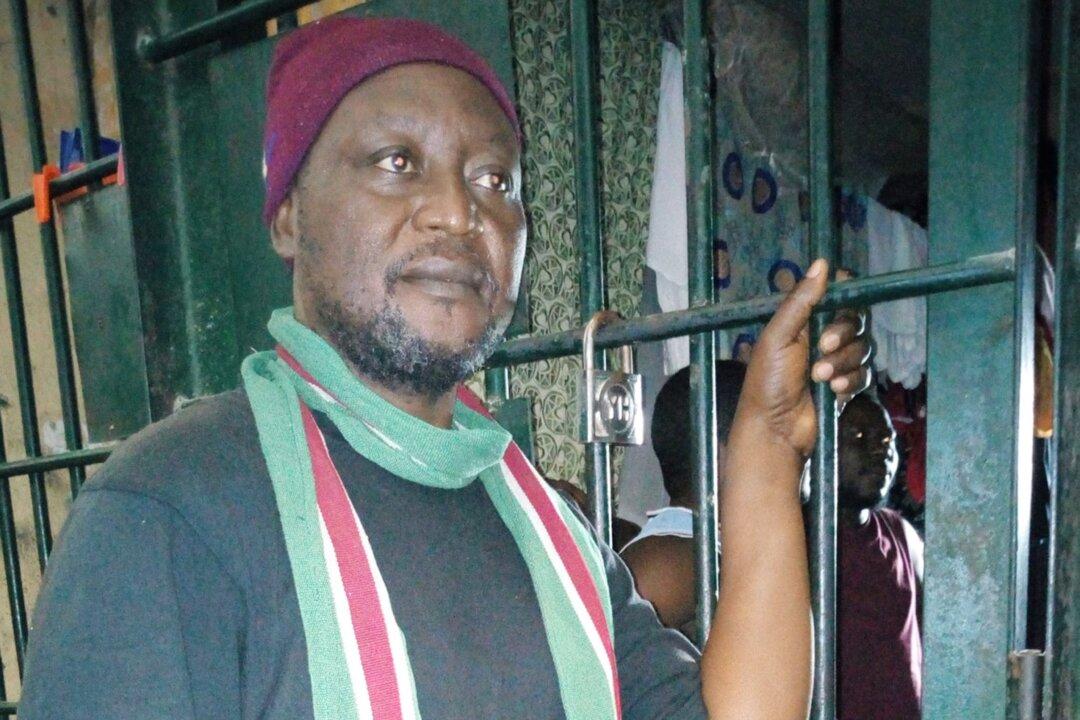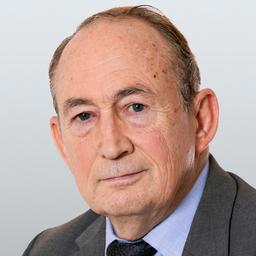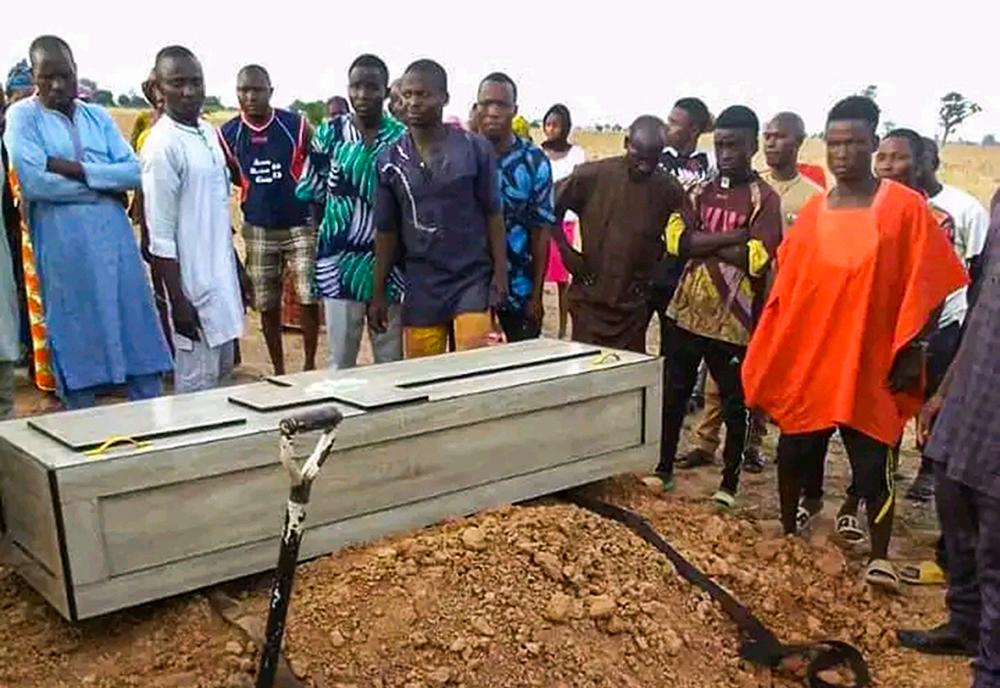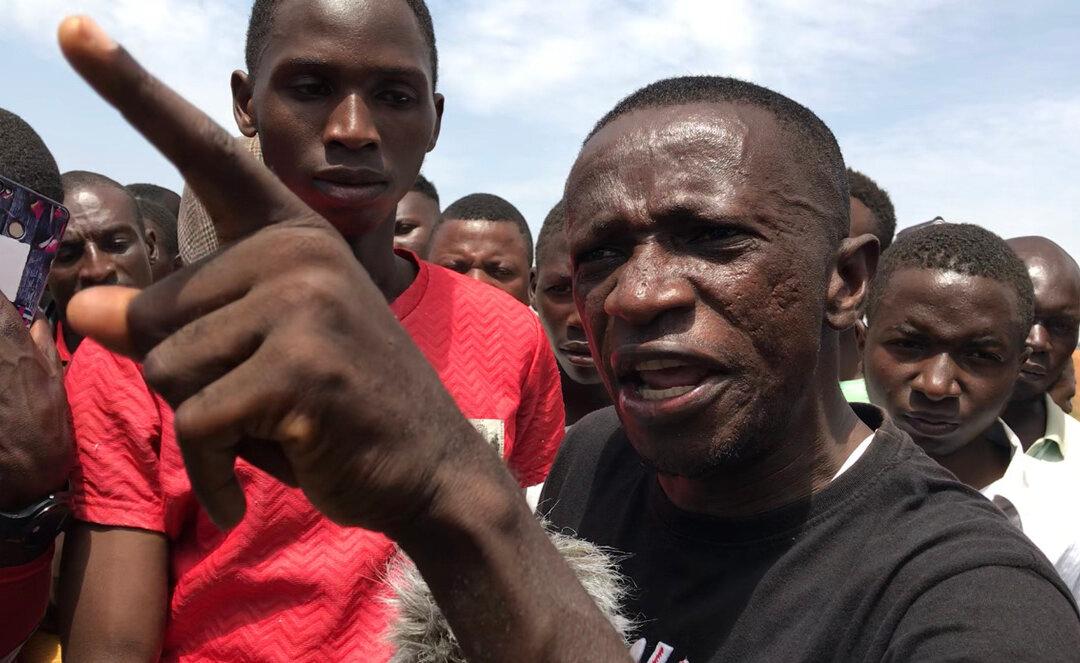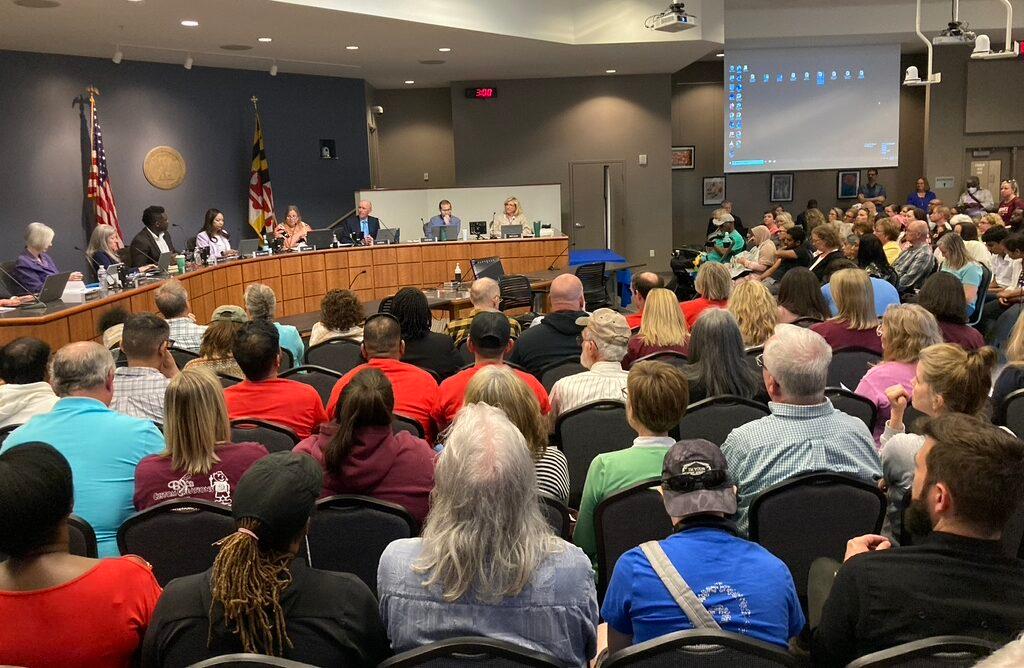Luka Binniyat was arrested on Nov. 4 in Kaduna, Nigeria, and charged with “cyberstalking” under a statute denounced by critics as intended to silence opposition journalists.
Cyberstalking is defined in Nigerian law as “the act of threatening, harassing, or annoying someone through multiple email messages, as through the Internet, especially with the intent of placing the recipient in fear that an illegal act or an injury will be inflicted on the recipient,” according to ResearchGate.
Nina Shea, the chief religious freedom scholar at the Hudson Institute, told The Epoch Times: “It’s preposterous that Kaduna state’s powerful security commissioner is claiming to be a victim of ‘cyberstalking’ by a small-town reporter based on an article he wrote for an American audience.
“Nigeria’s federal crime of cyberstalking is defined essentially as making someone feel ‘annoyed’ over something sent over the internet and was aimed at the notorious Nigerian phishing attempts. The charge that the security commissioner is the victim in this case is transparently trumped-up and far-fetched and intended to insulate him from even the mildest media criticism.”
Shea pointed to a study by Lagos State University legal scholar Abiodun Ashiru that established that the cyberstalking provision is a “legal restriction on the right to freedom of expression in Nigeria.”
The petition further states:
“Binniyat joins the growing ranks of journalists unjustly detained for reporting on rampant religious-based violence in Nigeria and calling out the inept officials who refuse to acknowledge victims of these atrocities and to prosecute those responsible. International pressure to release Binniyat should be swift and severe.
“The abuse of Binniyat’s universal human right to freedom of expression and opinion will only serve to further mute the voice of independent journalists conducting vital reporting on rampant religious-based violence in Nigeria. The detainment of Binniyat who was at the time writing for an American audience is a blatant effort by Nigerian officials to curtail the agency of free press in the United States and hinder the sharing of information critically needed by the West to ascertain and appropriately address the full extent of persecution in Nigeria, America’s most important partner in Africa.”
Laugesen said the petition, posted Nov. 12, is getting a “good response.”
Shea is among the growing list of critics calling for Binniyat’s release. “This case is intended to silence a reporter and distract attention from the serious subject of his reporting. The court should immediately release Luka Binniyat and drop these frivolous yet destructive charges,” she said.
“Most Nigerian media refuse to report on the proceedings for fear of the government’s retribution,” Kyle Abts, executive director of the International Committee on Nigeria, wrote to The Epoch Times.
“Nigerian authorities should cease all legal proceedings against journalist Luka Binniyat, release him immediately, and reform the country’s laws to prevent the criminalization of journalism,” said Angela Quintal, CPJ’s Africa program coordinator, in New York.
The CPJ further quoted Quintal: “Disputes over reporting should be settled in ways that avoid the jailing of journalists.”
The hearing will combine the research of two organizations—PEN America and Scholars at Risk—to raise awareness of the increasing number of writers and thought leaders jailed for expressing themselves. The three groups have documented that the number of imprisoned journalists and writers has substantially increased in the past two years.
